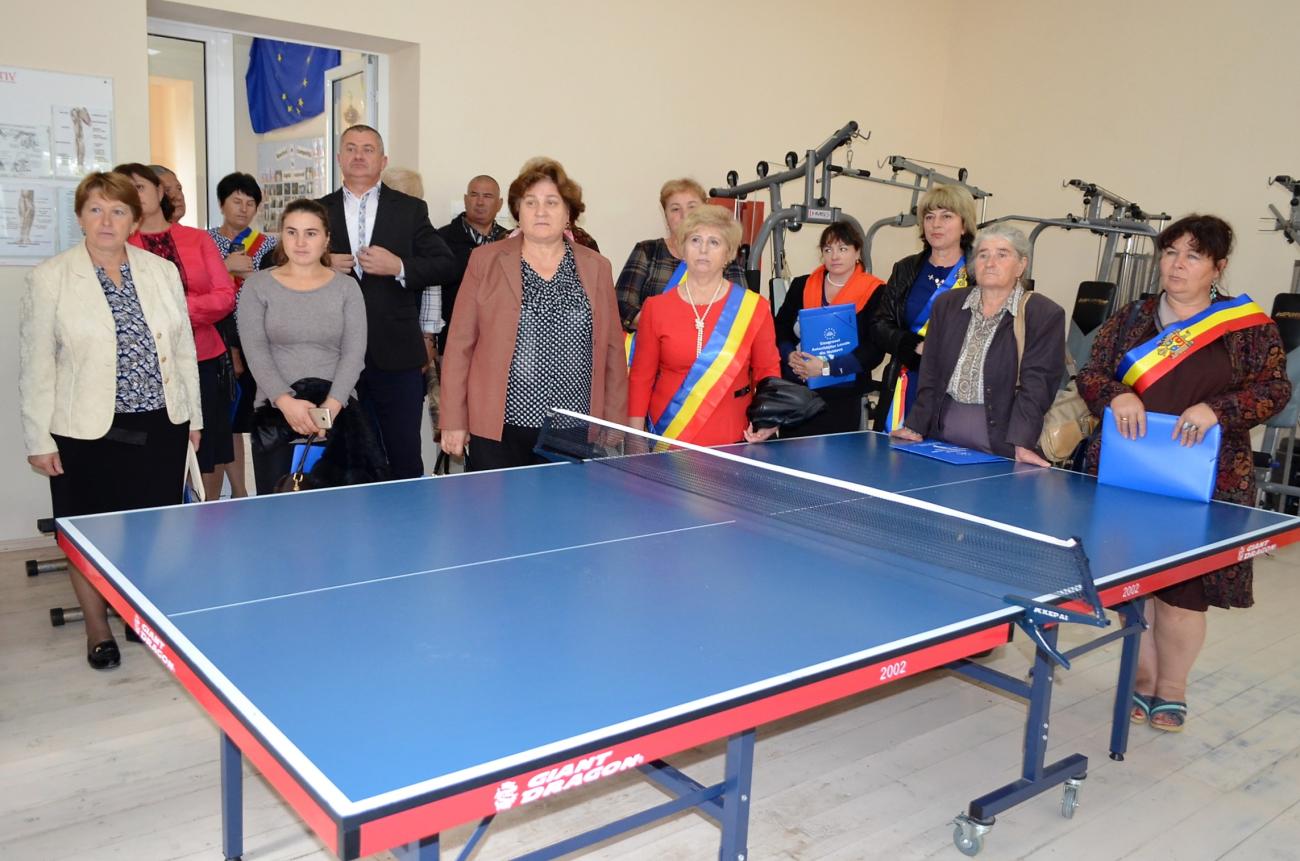She is proud with a renovated kindergarten and a school, with a community center, a sports school, but also with other projects implemented that changed people's lives for the better. It is about Galina Ceban, woman mayor at her second mandate in the Chircăieşti village, Căușeni district, who hosted a study visit for 20 women mayors across the country.
And since the most important project for her remains the renovation of the kindergarten "Andrieș" from the village, the mayor Galina Ceban started the study visit in this building. "My greatest pride is that we managed to modernize the kindergarten and to host more children, because that was the biggest problem of the village. We must invest in children, in our future, and now, every morning, I look with joy at those 154 children who come to kindergarten with pleasure and to the playgrounds who are throbbing with life," stated Galina Ceban.
The study visit continued to other important institutions, such as the gymnasium "Mihai Viteazul", multifunctional community center and the sports school.
Parascovia Antoniuc, woman mayor of Carnatenii Noi village, Căușeni district, was impressed by the sports school. "Once I get home, I want to put in motion the construction of a sports school. Young people from the village are eager for new activities. And if it would be such a sports hall, they would gather and make sport", pointed out the mayor.
Moreover, Parascovia Antoniuc said that these visits open her eyes and give her new ideas about how to develop the village she leads. "Sitting in the village, you are getting used to the idea that everything is fine and you don’t need to make any changes. However, due to the exchange of experience, and see that things can be different. So, once I visited Chircăieşti village, I am determined to attract external funds in my community," said the mayor of Cârnățenii Noi.
About how to attract foreign funds for the prosperity of the village remained fully impressed the mayor of Costeşti village, Ialoveni district, Natalia Petrea. "To solve a problem, we should not focus only on the existing budget, but to seek solutions to the extra-budgetary sources. This is because each locality budget is not enough to ensure development of the village. Therefore, this study visit has motivated me to focus more on writing and implementing projects with extra-budgetary support," stated women mayor of Costești. Moreover, Natalia Petrea noted that every woman needs such study visits, regardless of the experience they have in local public administration. "It's inspiring to see successful examples of implemented projects, as each of us can take over from this experience and transfer it to our community," said Natalia Petrea.
The mayor who hosted the study visit noted also that these study visits are needed for women mayors, regardless of their mandate. "Given the financial situation in the country, women mayors at their first mandate, and not only, have a great need for these exchanges, so to make, in turn, positive changes for the people. I participated also in study visits and I know, from my experience, that these visits can help you and teach you many things," Galina Ceban stated.
And for the women mayors at their first mandate, Galina shared her “recipe” of the success. "Do not give up, but insist and knock on all the doors, until one will be opened. If you set a goal, you will achieve it! For example, my next goal is to illuminate streets of the village and I will do so, until the end of my mandate”, said the mayor Galina Ceban.
The study visit was organized by the Congress of Local Authorities in Moldova, with the support of UN Programme "Women in Politics", implemented by the United Nations Entity for Gender Equality and the Empowerment of Women (UN Women) and the United Nations Development Programme (UNDP) in partnership with East Europe Foundation and Center "Partnership for Development", financially supported by the Government of Sweden.


